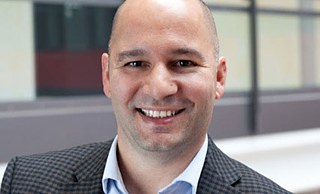Memory research
“Digital Media Are a Blessing”

Mr. Düzel, has our memory capacity declined since we have come to rely on smartphones? Are we perhaps even at risk of suffering “digital dementia”? On the contrary, claims memory researcher Emrah Düzel.
Manfred Spitzer’s book “Digitale Demenz” (i.e. Digital Dementia) was a best-seller in Germany. As a dementia researcher, what do you think about this expression?
I believe it is very problematic to bandy about the term dementia so carelessly. Dementia is a terrible progressive disease for which there is currently no cure. It is not appropriate to use the term in connection with digital media merely for cheap effect, and it is simply wrong to talk about dementia in this context.
All the same, many people have the feeling that their memory capacity has been on the decline since they have come to rely constantly on the Internet. Whereas many older people can recite countless addresses, poems and capital cities from memory, younger people sometimes find it hard to remember even their own mobile phone number.
In our research we compare the memory capacity of older and younger test subjects – and it remains the case that young people find it easier to remember things than older people do. In the past ten years, I have found no evidence of any negative trend in young people. What is more, young people nowadays have to remember far more things. Information being easily accessible on a smartphone is no help, as they are still required in exam situations to reproduce the facts themselves, unaided.
“There is no alternative to learning”
In other words, we still need our memory – it is not enough to know where information can be found or how to quickly google a particular fact on the internet?Foreign languages are a good example – it is impossible to have a conversation with someone if you are concentrating on a handheld device the whole time. The same applies to most professions: you cannot work as either a doctor or a mechanic if you do not have the necessary knowledge in your head. This has to do with the fact that we can only draw conclusions from information that is stored in our brains. And this is why we will also find that there will be no alternative to learning even in the future.
So the digital age has done no damage to our memory capacity so far?
On the contrary, digital media are a blessing – particularly as far as dementia and an ageing population are concerned. They offer us new ways in which to hone our cognitive skills. We are also better able to assess cognitive ability and track it over longer periods, allowing us to identify risk profiles at an early stage.
It is claimed that computer games or apps can be used to specifically train the brain – a bit like exercising a muscle. Is that true?
It is certainly the case that this can increase the size of neurons under certain circumstances. Furthermore, new neurons can be created in some regions of the brain for as long as we live, so in this respect the comparison with the muscle makes sense. The question, however, is to what extent such training serves any generally useful purpose. Let’s say you spend all your time exercising your biceps, for instance, and then you are supposed to play tennis. Although you now have a strong biceps and can play one particular stroke very strongly, that does not imply that you will be any good at tennis. It is much the same with cognitive training.
Explorers have good memory capacity
That is to say apps can “exercise” a certain ability but it is questionable how useful that will be in other contexts?We are currently researching whether there are key functions which are used by many different cognitive processes and which, if they are trained, can develop generally beneficial effects. All that we have been able to demonstrate so far is that there is a correlation between memory and physical fitness. Movement triggers certain processes in the brain. If movement is coupled with physical effort, biochemical processes are additionally set in motion which improve the plasticity of the brain.
What do you recommend to people who wish to improve their memory?
What I immediately recommend is that they adopt an exploratory lifestyle, that is to say that they explore their environment both physically and mentally. They should visit a new country and engage in physical activity – climb a mountain or walk around an unfamiliar city. That is what we were designed to do. We were hunters and gatherers and had to seek out sources of food by exploring the world around us. When we do this our motivational system and our ability to perform operate at full capacity.
So climbing mountains and walking have been proven to have a beneficial effect on our memory capacity?
When we experience new things and are physically active, new nerve cells are generated in certain regions of the brain and incorporated into existing networks. This improves the accuracy of our memory.
Coming back to the digital media: in other words, we should not only be exploring the world around us via a screen, but with our own hands and feet – but we can take a smartphone with us nonetheless?
Absolutely. I see no evidence of us tending to become less keen to explore as a result of the Internet. On the contrary, the fact that we have access nowadays to a great deal of information about other places has made us more mobile.
Emrah Düzel is director of the Institute of Cognitive Neurology and Dementia Research at University Hospital Magdeburg. A professor of cognitive neuroscience, he also heads the Clinical Neurophysiology and Memory Group at the Institute of Cognitive Neuroscience, University College London.